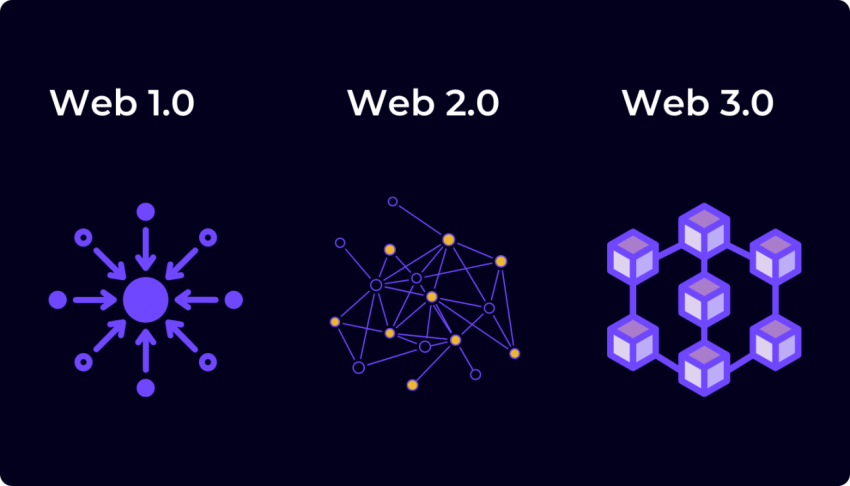Unless you have been living under a rock, you have seen first hand the transformation the internet has undergone over the last few decades. Web1 was a read-only web, where users could only consume content. Web2 was a participatory web that allowed users to create and share content. Now, we are on the cusp of another major evolution with Web3, which is poised to revolutionize the internet yet again.
Web2 vs. Web3:
Web2 has been the norm for the last decade. It is the era of social media, online marketplaces, and content creation platforms. The defining features of Web2 are user-generated content, interactivity, and social networking. Web2 platforms are powered by centralized servers, which store user data and run the applications.
Web3, on the other hand, is a decentralized web that uses blockchain technology to enable trust, security, and transparency. Web3 is built on the principles of decentralization, interoperability, and user control. It is designed to create a more democratic and open internet, where users own their data and have more control over their online experience.
A few popular Web3 examples:
- Cryptocurrency: Bitcoin and other cryptocurrencies are decentralized digital currencies that operate on a blockchain, a decentralized ledger that is maintained by a network of nodes. Blockchain technology enables secure and transparent transactions without the need for intermediaries like banks or payment processors.
- Decentralized Applications (dApps): dApps are applications that run on a decentralized network instead of a centralized server. They are powered by smart contracts, which are self-executing contracts that enforce the rules of the application. dApps can be used for a variety of purposes, including finance, social networking, and gaming.
How Web3 will change the landscape of the internet:
- It will create a more decentralized and democratized internet. Instead of relying on a few tech giants to control the internet, users will have more control over their personal data and online experience.
- It will enable new business models, such as decentralized marketplaces and peer-to-peer lending platforms.
- It will create new opportunities for innovation and creativity. dApps and blockchain technology will enable developers to create new applications and services that were not possible before.
At the end of the day, Web3 is the next evolution of the internet. It brings a decentralized and open internet that will give users more control over their personal data and online experience. With the rise of cryptocurrencies, decentralized applications, and blockchain technology, we are witnessing the birth of a new era of the internet. This transition will not happen overnight, but it is happening. It is up to us to embrace this new era and help shape the future of the internet.
